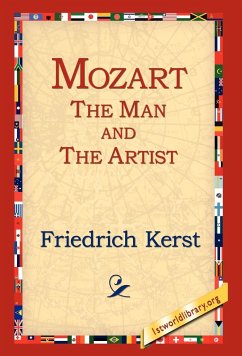Purchase one of 1st World Library's Classic Books and help support our free internet library of downloadable eBooks. 1st World Library-Literary Society is a non-profit educational organization. Visit us online at www.1stWorldLibrary.ORG - - The German composer Wolfgang Amadeus Mozart (1756-1791) was not only a musical genius, but was also one of the pre-eminent geniuses of the Western world. He defined in his music a system of musical thought and an entire state of mind that were unlike any previously experienced. A true child prodigy, he began composing at age 5 and rapidly developed his unmistakable style; by 18 he was composing works capable of altering the mind-states of entire civilizations. Indeed, he and his predecessor Bach accomplished the Olympian feat of adding to the human concepts of civility and civilization. So these two were not just musical geniuses, but geniuses of the humanities. Mozart's music IS civilization. It encompasses all that is humane about an idealized civilization. And it probably was Mozart's main purpose to create and propagate a concept of a great civilization through his music. He wanted to show his fellow Europeans, with their garbage-polluted citystreets, their violent mono-maniacal leaders and their stifling, non- humane bureaucracies, new ideas on how to run their civilizations properly. He wanted them to hear and feel a sense of civilized movement, of the musical expressions of man moving as he would if upholding the highest values of idealized societies. One need only listen to the revolutionary opening bars of his famous Eine Kleine Nachtmusik to see this.








